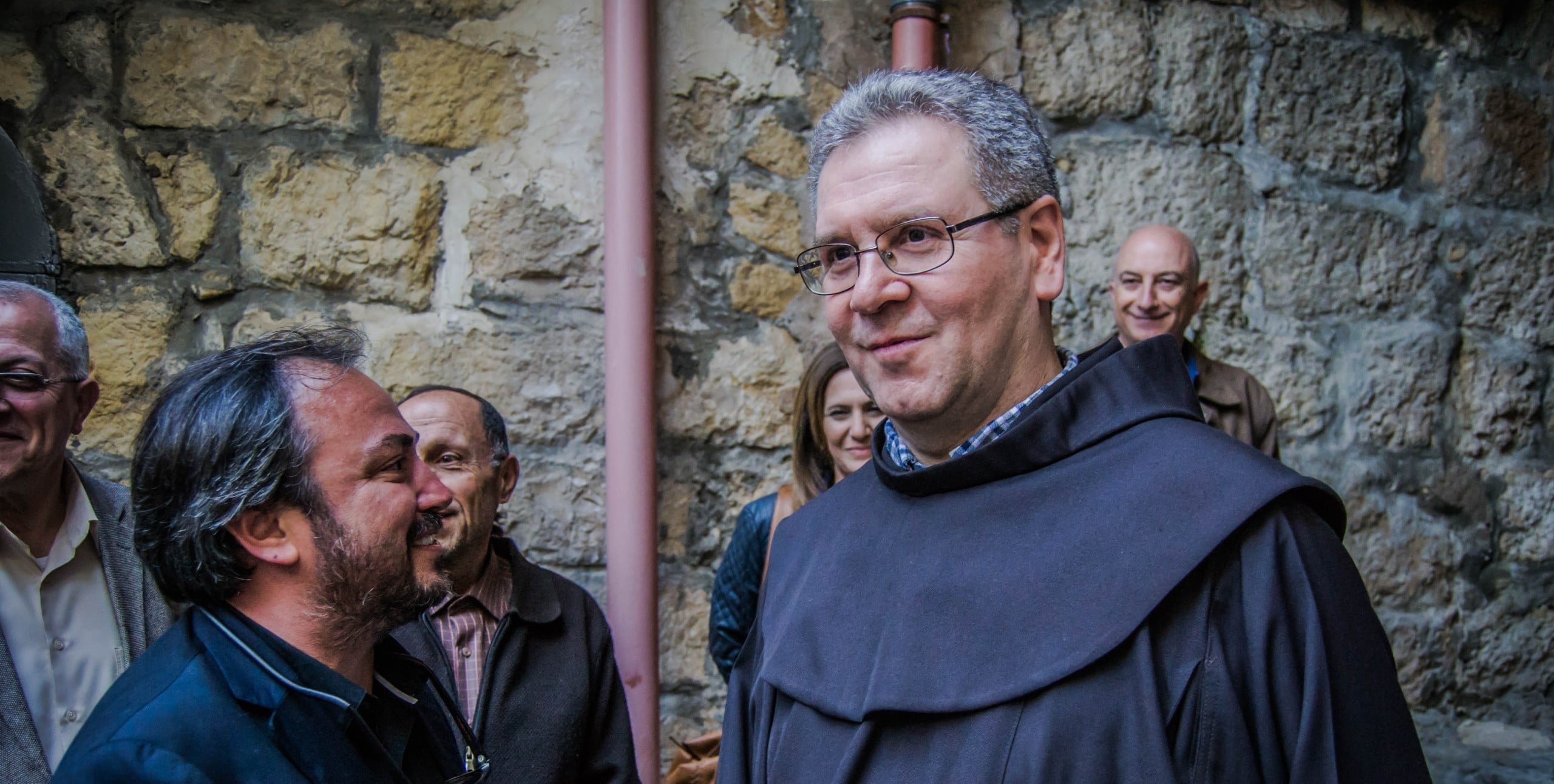
Holy Land and COVID-19: Witness of the Custos of the Holy Land
“The Holy Land in the days of the Coronavirus: the difficulties, the challenges, the hope”. This is the title of the online meeting held last Thursday 28 May with the Custos of the Holy Land, Fra Francesco Patton. A dialogue of about an hour with the journalist and communications manager of Pro Terra Santa Andrea Avveduto to touch on the most important issues that the Holy Land is going through in this period of pandemic.
The consequences of Covid-19 have unfortunately also affected a secular institution such as the Custody of the Holy Land which has been forced, in agreement with the other churches, to close to the faithful the Holy Places of Christianity, the Holy Sepulchre and the Basilica of the Nativity. Pilgrims left the country at the beginning of March and the celebrations were held behind closed doors, without the presence of the faithful. “I immediately asked the friars to become pilgrims themselves in the name of the many who would have liked to come. I asked the communities to intensify the rhythm of prayer,” said the Custos. In Nazareth, the most important Marian shrine in the world, one of the few shrines that never completely closed its doors during the lockdown, there was daily adoration with exposition of the Blessed Sacrament in the morning and with alternating friars and volunteers to pray in the name of the whole of humanity. A humanity represented by the more than 50 nationalities of the friars of the Custody in prayer.
Pilgrimages to the Holy Land are a precious resource: “Pilgrims are those who support us also thanks to the offerings they leave us during the journey. This allows us to carry out our mission: from the care of the Holy Places that give work to the local community, to the pilgrimages that give work to local Christians and schools and social works,” continues Father Patton. The absence of the pilgrims and the Good Friday collection, postponed by the Pope’s will to September 13, represent two major obstacles for the Custody at this time. “We hope that the solidarity of Christians throughout the world will not fail, while understanding the serious economic difficulties of all. For us, the lack of the two main sources of help puts the many works in favour of the local communities in which we operate with our mission”.
The Custody of the Holy Land, in fact, deals not only with the Holy Places, but also with the living stones that live in the Holy Land, the local Christian community and beyond. The Franciscans employ about 2,000 people, about a thousand of whom come from their fifteen schools. Schools are an indispensable element of the Franciscan mission in the Holy Land because of the educational and social role they represent. The Custos calls them “Gyms of coexistence” in which Christian, Muslim and even Jewish children, as in the case of the Magnificat (the music school) study and learn together.
The fifteen schools, from kindergarten to high school, accompany the children in a high quality training course accompanied by an education for peace and dialogue. Even as children, Christians of all churches and Muslims, they become accustomed to living together and to mutual respect. “These are fundamental places to help people get out of poverty, both to educate them to coexistence and peace, and to help build a different future,” Patton reiterates. They represent the key to reconciliation in a land harassed by political and religious conflicts.
For this reason Pro Terra Santa is committed to supporting the Franciscans at this time of economic crisis to ensure that education is not interrupted, helping families and teachers, in particular, of schools in the Palestinian territory that do not receive state aid.
The Custos is confident: “I am a great supporter of Divine Providence, I do not believe that it will fail here in the Holy Land,” he says, recalling some biblical episodes in which the Lord has shown himself at the side of his people. “We know we all have to participate in the sacrifices, but Providence and help will not fail if we know how to share a few loaves and a few fish or donate a few pennies as the widow of the Gospel of Mark did”.